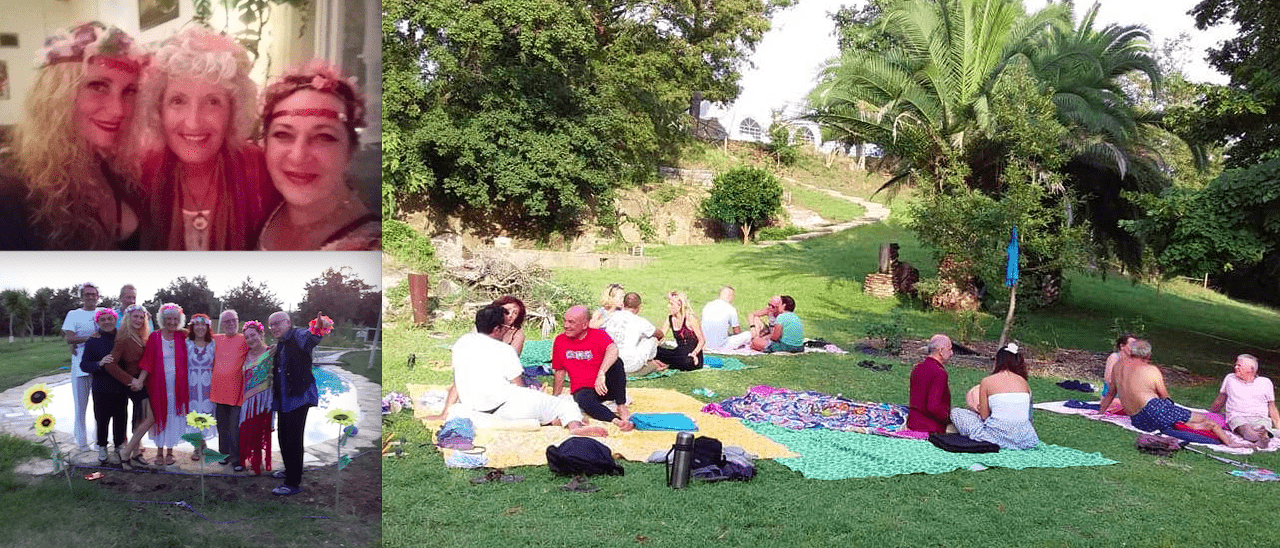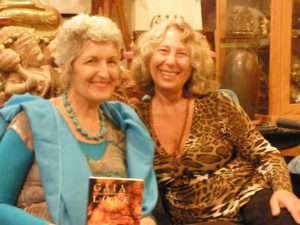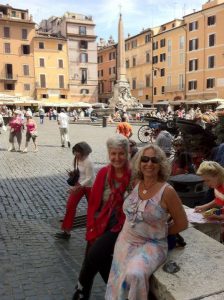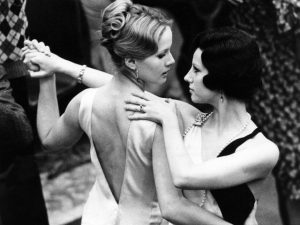Bonobo Coaching – Sustainable Paths to Ecosexual Love
A Coaching Practice by Dr. SerenaGaia
Are you ready to embrace the Earth as your partner, as the partner you share with fellow humans an all other forms of life.
Ecosexual love is the style of love that reaches beyond genders, numbers, orientations, ages, races, origins, species, and even biological realms, to embrace all of life as a partner with equal rights.
This style of love is based on four principles and the alchemy of their related practices.
- Know and love the ecosystem called thyself.
- Know and love the temple of the other
- Know and love the partner we all share: the Earth
- Know and love those who share this partner with you: Humankind
These practices apply basic principles from Tao, Tantra, amorous inclusiveness (aka polyamory), and sexual fluidity (aka bisexuality).
When you train in these practices, you are ready to become an artivist of love. Artivists of love are beings capable of generating all the love they need and then some. They aspire to align their own health and happiness with each other, and with the health and happiness of all beings that form the ecosystems that impact them.
Artivists of love are beings of light who often manifest alchemies of ecosexual love that create balanced symbiotic connections all around.
If you envision yourself in this horizon, if you wish to practice love expansively, if you aspire to become an artivist of such expansive love, you can benefit from attending a series of weekly meetings that Dr. SerenaGaia offers online. One is known as The Resilience of Love.
Dr. SerenaGaia’s personal coaching sessions can support you in integrating your learning process with your experience and personality and in pursuing your aspirations further.
Her presential courses will resume when possible, and they include the Alchemy of Ecosexual love, and The Symbiosis of Ecosexual love.
If you are longing for transformations in your life that will empower you to navigate a given crisis and envision the symbiotic opportunities it brings to your life, you can start now.
# # # # #
Here are some questions that you might have already considered:
Are you longing for expansive ways to practice love that also support your natural sense of honesty and integrity? Do you sometimes experience monogamy as a social norm that curbs your natural capacity to express yourself as a being capable of love? Do you experience a natural desire to share yourself widely as a resource of love? Would you like to experience a natural sense of fluidity, inclusiveness, and elation when others share themselves in these capacities as well? Have you thought of what exclusivity means to you, and in what kinds of contexts you would like to experience it?
If some of these questions resonate with you, you are not alone, and you came to the right place.
The desire to practice inclusive styles of love is pervasive today. In the age of Gaia, humankind is becoming more aware of the symbiotic nature of existence as beings who share a planet and a world. Many people are now aware of planet Earth as a generous partner and hostess. We all share this partner we love, and so when we consider sharing our resources of love in generous and inclusive ways, we know that we also honor her.
Loving fluidly and inclusively is ecosexual! Exclusivity is wonderful as long as it is an agreed upon choice in romantic, amorous, collaborative, and/or sexual aspects of any relatedness. People’s belief in the social norm of monogamy is eroding, in the context of problematic experiences in conventional marriages. Many of us make the intentional choice to love the person, not the gender, and to espouse feminine and masculine principles within ourselves. As more scientific evidence becomes available, it becomes apparent that monogamous and monosexual behavior in humans result from culture rather than nature. At this time of accelerated change and transformation, hearts and minds connect in the noosphere and cultural notions of evolution are revisited, as people search for more symbiotic ways to relate within and around ourselves. However, not many people know how to navigate the transition from exclusivity to fluidity and inclusiveness in balanced, sustainable, compassionate ways.
 Bonobo Coaching opens paths to styles of fluid and inclusive love that are gradual, balanced, and sustainable for all those emotionally involved. Your coach, Serena, has successfully transitioned to a rich personal life of amorous inclusiveness where relationships sustain each other in balanced and graceful ways. She has studied inclusive styles of love like polyamory and bisexuality for over two decades. She has practiced amorous inclusiveness at various levels for about three decades. She is the founder of the School of Ecosexual Love. She is a scholar in the arts of healing and loving, and a supporter of the Gaia Hypothesis. She is the author of several books on these interrelated subject, and has offered workshops and coaching sessions worldwide. She can coach in English, Français, Italiano, and Español. She is fluent and formally trained in these four languages.
Bonobo Coaching opens paths to styles of fluid and inclusive love that are gradual, balanced, and sustainable for all those emotionally involved. Your coach, Serena, has successfully transitioned to a rich personal life of amorous inclusiveness where relationships sustain each other in balanced and graceful ways. She has studied inclusive styles of love like polyamory and bisexuality for over two decades. She has practiced amorous inclusiveness at various levels for about three decades. She is the founder of the School of Ecosexual Love. She is a scholar in the arts of healing and loving, and a supporter of the Gaia Hypothesis. She is the author of several books on these interrelated subject, and has offered workshops and coaching sessions worldwide. She can coach in English, Français, Italiano, and Español. She is fluent and formally trained in these four languages.
 Bonobos are one of the most amorous and peaceful species Gaia, our hostess planet, has ever seen. They use grooming, cuddling, nurturing, pleasure, sexual fluidity, and amorous inclusiveness to resolve conflicts and to enhance social cohesion. They are the primate species genetically closest to humans. Bonobo Coaching is a style of coaching designed to sustain us humans in activating the virtues of our genetic kinship with Bonobos and put them to beneficial use.
Bonobos are one of the most amorous and peaceful species Gaia, our hostess planet, has ever seen. They use grooming, cuddling, nurturing, pleasure, sexual fluidity, and amorous inclusiveness to resolve conflicts and to enhance social cohesion. They are the primate species genetically closest to humans. Bonobo Coaching is a style of coaching designed to sustain us humans in activating the virtues of our genetic kinship with Bonobos and put them to beneficial use.
When not freely chosen, exclusivity can be asphyxiating. In the transition from exclusivity to expansive amorous inclusiveness, Serena has made all the mistakes. However, she never allowed a mistake to kick her back into asphyxiation. What matters about mistakes is the interpretation. In offering coaching sessions, Serena promises to sustain you in interpreting each mistake as an opportunity to learn and move one step forward on the path to the expansive amorous inclusiveness and fluidity you heart and mind aspire to.
FAQ – Frequently Asked Questions:
Q: What is coaching? How does it differ from therapy?
A: Coaching is a way to develop through a confidential dialog with a person whose wisdom and experience one trusts. This dialog intends to help one move beyond an emotional place where one feels stuck due to societal and conventional limitations, when these fall short in appreciating one’s multiple capacities and talents for love. Coaching is for people who are well. It does not intend to cure any condition. However, it does intend to sustain one in developing one’s unique talents for love.
Q: What can coaching do for me if I’m seeking to develop an inclusive style of love?
A: Inclusive love is a way of love that expands beyond the mono paradigms typical of Western cultures in the modern world: monosexuality and monogamy. Its basic premise is that love is an art whose conscious practice helps people develop their basic talents as amorous persons, and become more abundant resources of love for their communities and life as a whole.
Q: How can I get some coaching?
In general, Dr. SerenaGaia prefers to offer coaching sessions to people who have already followed and participated in one or more of her journeys, either in-presence, or online, or both. In fact, in these contexts it is easier to get to know each other in a preliminary way and to establish trust and contact. If you have already met Dr. SerenaGaia in one of these contexts, do not hesitate to contact her for one or several coaching sessions, either in-presence and online. Write to dr.serenagaia@gmail.com, or send a message on WhatsApp to +39 329 4779406. You are super welcome *. Thank you!
If you have not yet had the opportunity to attend an event led by Dr. SerenaGaia, you can request a preliminary interview with her by email or phone. In response to your request, a short preliminary assessment interview may be arranged. If Dr. SerenaGaia feels that her coaching can support you in your desire to move forward on the path of inclusive love, she will make a coaching appointment with you. Enjoy the adventure of transformation and bon courage!
Coaching can often produce results in one to four sessions. Coaching sessions can last from one to two hours each, organic time. The cost is $ 80 per hour per person. You are invited to pay your sessions in advance, by bank transfer or by Pay Pal.
For a payment on Pay Pal, use the address serena.anderlini@gmail.com. You can send what you need as a money to friends, and add a note to specify what it is for. Thanks!
If you prefer to make a bank transfer, you can use this international account:
Serena Anderlini – IBAN: DE97 7001 1110 6052 5144 00 – BIC / SWIFT DEKTDE7GXXX – Adddress: Handelsbank, Elsenheimer Str. 41, Munchen 80687 Germany.
Be that as it may, send a payment only AFTER your first coaching appointment has been scheduled. Thanks!
Appreciation: “Thank you so much for all your support and your brilliant consulting in Malpensa! It has been really helpful…” Ryan from Vienna
Q: What kinds of coaching sessions are available?
A: Coaching sessions are available in presence, when possible, and especially during and after presential courses. See also The Garden of Pleasures. They are also possible long distance, on zoom.
Coaching sessions can be individual or with two or more participants. Typically, participants are involved in some shared love practices. Each participant is evaluated individually before coaching can start. The hourly cost of a multiple session is established according to the needs of the group or dyad. It is usually less than separate individual sessions.
Q: Are seminars also offered?
A: Yes. Dr. SerenaGaia offers a series of seminars on Ecosexual Love, including The Resilience of Love, which is offered online, The Alchemy of Ecosexual Love, which is offered on an annual basis in Suncave Garden, nearby of Rome, Italy, in the summer, and The Symbiosis of Ecosexual Love, which is a new program in the process of being launched. Go to the Calendar tab and / or click on the links for details about events that are now scheduled.
Q: How can I bring a journey with Dr. SerenaGaia to my community?
A: Journeys are available on the basis of the request from already formed groups and communities. A minimum of 15 participants is required, plus a venue with comfortable and adequate activity space, and a local person in charge of the organization. One day, one weekend, or one-week journeys can be considered, according to the experiences and needs of the community in play. The cost of participation varies around $ 60 (€ 55) per day, to which costs must be added for the venue, meals and accommodation. It is always important that the person organizing contact Dr. SerenaGaia or one of the people in her team well in advance and with a well thought out event plan. Let’s wait to hear all the beautiful proposals that will arrive! Thanks!
Q: How can I reach Dr. SerenaGaia to book some of her services?
A: At the end of this blogpost you will find all contact by phone (WhatsApp) and by email. Make sure you clearly indicate Bonobo Coaching as the motivation for your message. Thanks! You can also connect on Facebook, Twitter, LinkedIn, and Instagram. Remember that Serena Anderlini’s Facebook profile has maxed out on friends. We invite you to like the Dr. SerenaGaia page. Welcome to our network! Thanks!
Works Consulted
- Anapol, Deborah. Polyamory in the 21st Century. New York: Rowman & Littlefield, 2010.
- Anderlini-D’Onofrio, Serena. Gaia and the New Politics of Love: Notes for a Poly Planet. Berkeley: North Atlantic Books, 2009.
- Eros: A Journey of Multiple Loves. New York: Routledge, 2006.
- Consiglio, Carlo. L’Amore con più partner. Rome: Pioda, 2009.
- Fisher, Helen. Why We Love? The Nature and Chemistry of Romantic Love. New York: Holt, 2004.
- Fromm, Erich. The Art of Loving. New York: Harper Perennial, 2006 (first published in German in 1956).
- Kingma, Daphne Rose. The Future of Love. New York: Main Street Books, 1999.
- Coming Apart: Why Relationships End. New York: Conari Press, 2000.
- Millenson, Jock, ed. Liberating Love: Readings from the German Meiga Communities. Aberystwyth: Cambrian, 2007.
- Robins, Suzann. Exploring Intimacy: Cultivating Healthy Relationships. New York: Rowman & Littlefield, 2010,
- Ryan, Christopher and Cacilda Jetha. Sex at Dawn: The Prehistoric Origins of Modern Sexuality. New York: Harper, 2010.
Acknowledgment:
The name “Bonobo Coaching” came up in a conversation with multiple friends, and in particular Murray Schechter. His sense of humor always gives me joy. I am grateful.
# # # # #
For more information and for scheduling, contact Dr. SerenaGaia asfo
dr.serenagaia@gmail.com, serena.anderlini@gmail.com, + 39 3294779406 (whatsapp), Serena Anderlini of Puerto Rico, on Facebook, Instagram, LinkedIn, and Messenger, @serenagaia on Twitter. Thank you!
aka Serena Anderlini-D’Onofrio, PhD
Erstwhile Professor of Humanities and Cinema at UPRM
Convenor of Practices of Ecosexuality: A Symposium
Contact: serena.anderlini@gmail.com, + 39 329 477 9406.
Fellow at the Humanities Institute, University of Connecticut, Storrs (2012-13)
Project: “Amorous Visions: Ecosexual Perspectives on Italian Cinema”

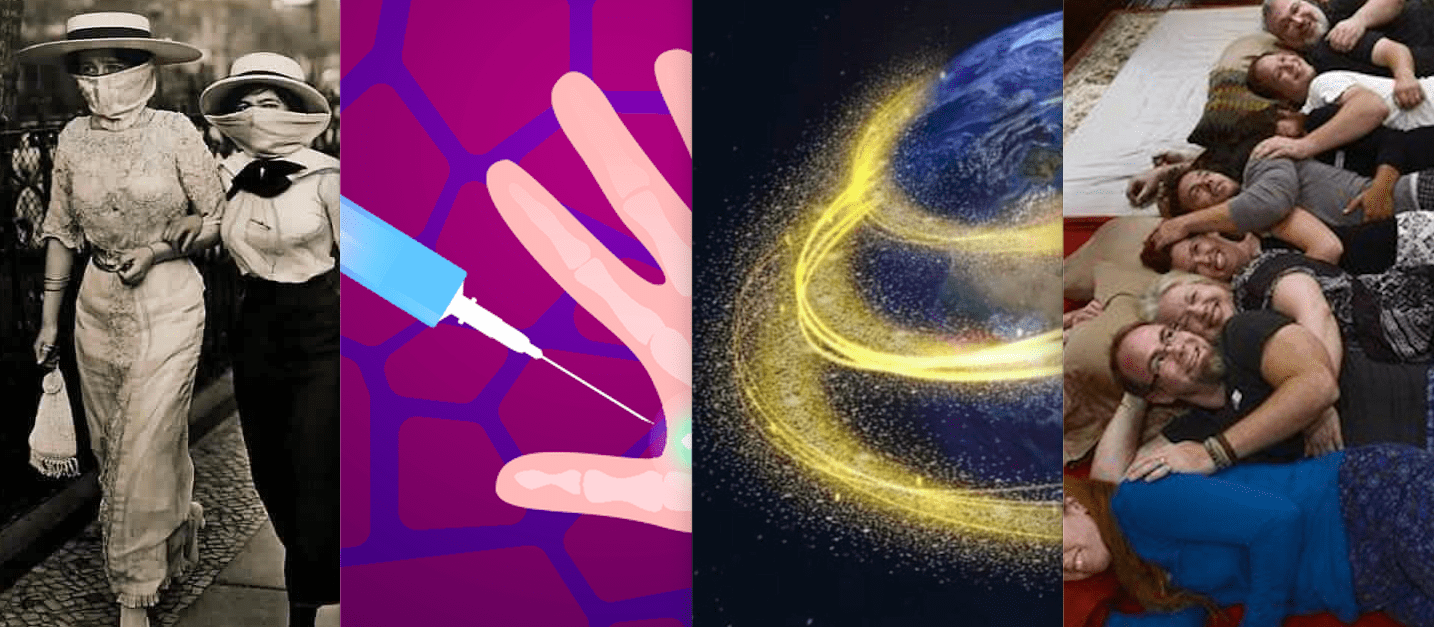
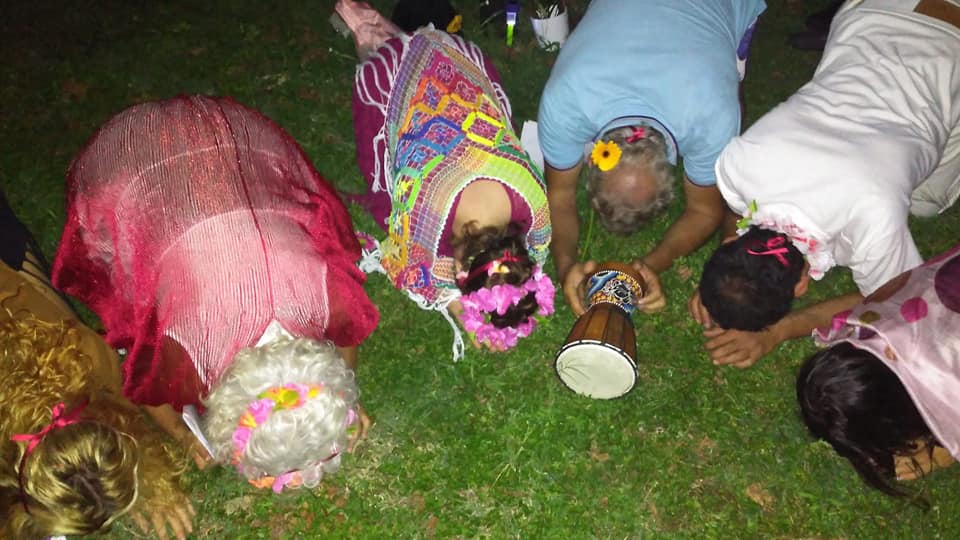
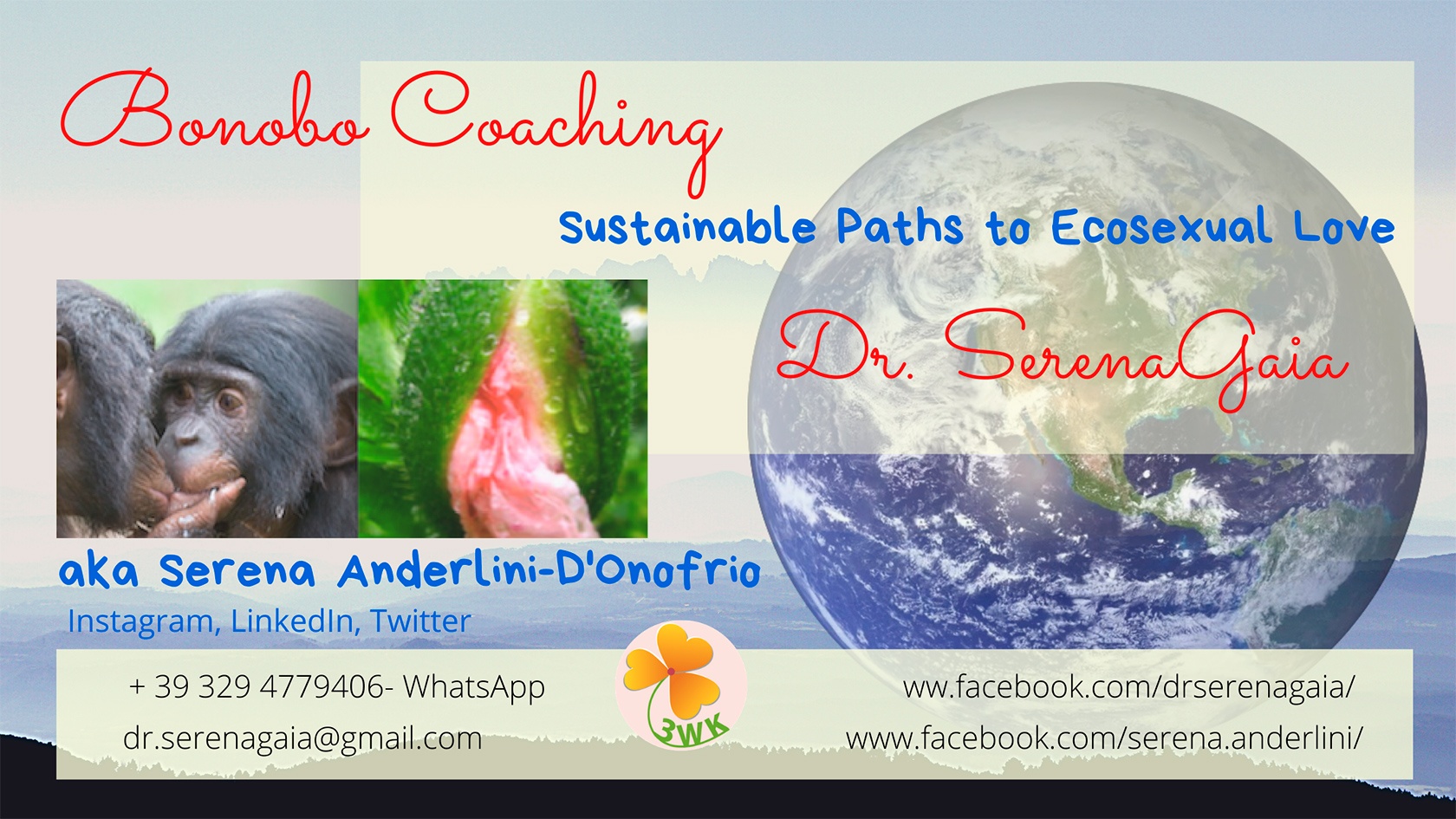
 Bonobo Coaching opens paths to styles of fluid and inclusive love that are gradual, balanced, and sustainable for all those emotionally involved. Your coach, Serena, has successfully transitioned to a rich personal life of amorous inclusiveness where relationships sustain each other in balanced and graceful ways. She has studied inclusive styles of love like polyamory and bisexuality for over two decades. She has practiced amorous inclusiveness at various levels for about three decades. She is the founder of the
Bonobo Coaching opens paths to styles of fluid and inclusive love that are gradual, balanced, and sustainable for all those emotionally involved. Your coach, Serena, has successfully transitioned to a rich personal life of amorous inclusiveness where relationships sustain each other in balanced and graceful ways. She has studied inclusive styles of love like polyamory and bisexuality for over two decades. She has practiced amorous inclusiveness at various levels for about three decades. She is the founder of the  Bonobos are one of the most amorous and peaceful species Gaia, our hostess planet, has ever seen. They use grooming, cuddling, nurturing, pleasure, sexual fluidity, and amorous inclusiveness to resolve conflicts and to enhance social cohesion. They are the primate species genetically closest to humans. Bonobo Coaching is a style of coaching designed to sustain us humans in activating the virtues of our genetic kinship with Bonobos and put them to beneficial use.
Bonobos are one of the most amorous and peaceful species Gaia, our hostess planet, has ever seen. They use grooming, cuddling, nurturing, pleasure, sexual fluidity, and amorous inclusiveness to resolve conflicts and to enhance social cohesion. They are the primate species genetically closest to humans. Bonobo Coaching is a style of coaching designed to sustain us humans in activating the virtues of our genetic kinship with Bonobos and put them to beneficial use.
